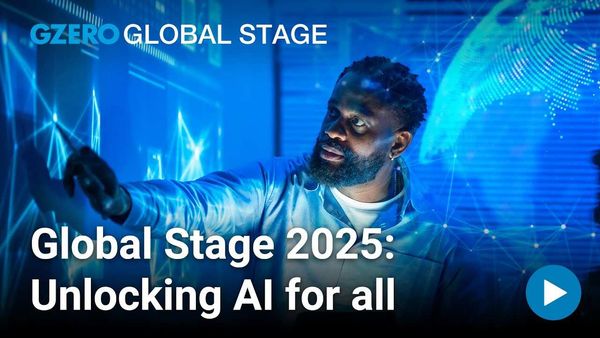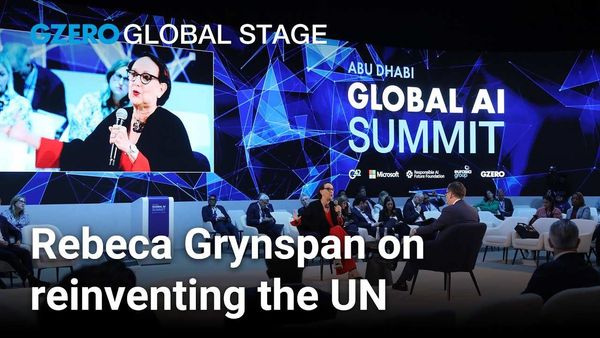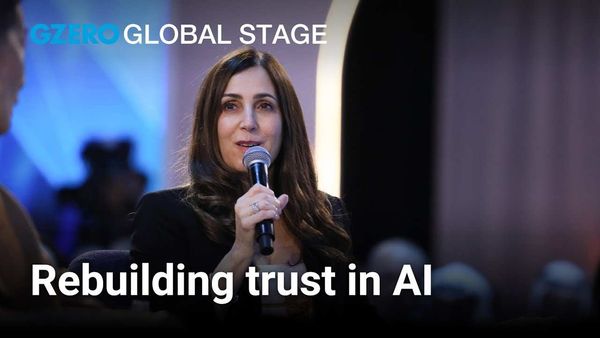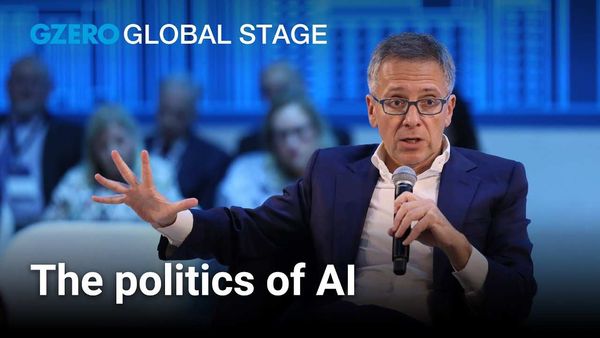Setting the global rules for peace in cyberspace, Wed Oct 14 at 11 am ET
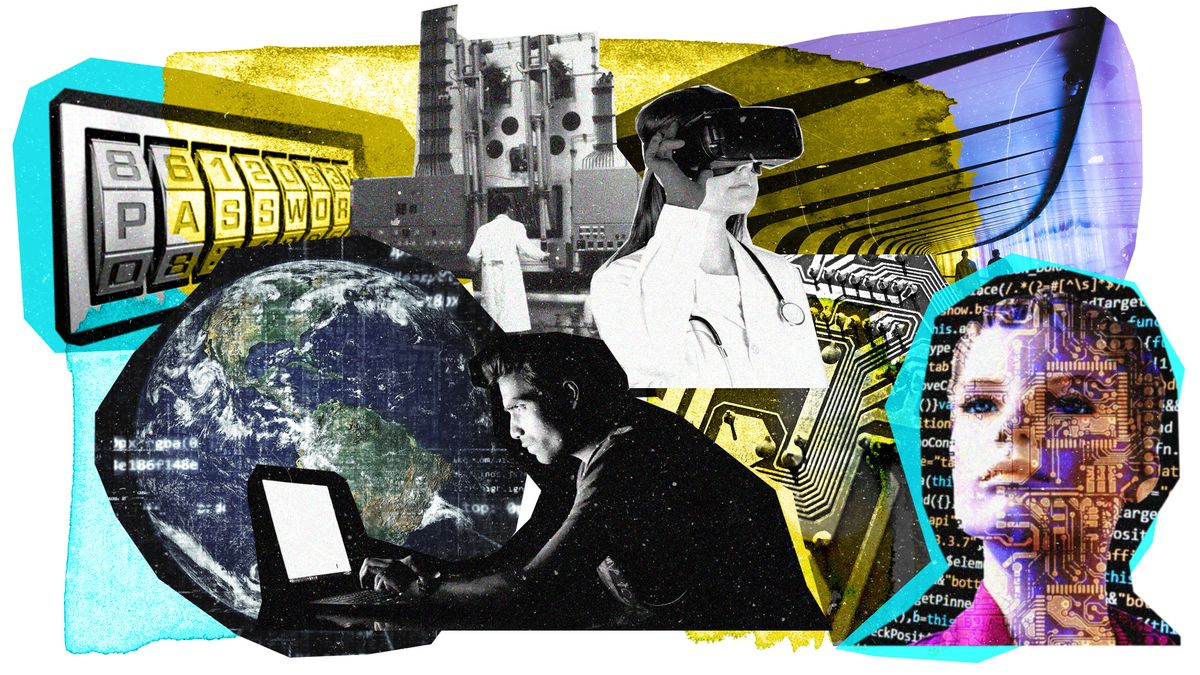
The United Nations has been working for over a decade on a global framework to govern cyberspace. But will it ever happen if global powers benefit from having no rules for cyber war? Find out in a livestream discussion, "Digital Peace: Trust and Security in Cyberspace," presented by GZERO Media — in partnership with Microsoft and Eurasia Group — on Wednesday, October 14 at 11a ET/8a PT/4p BST.
Watch our UNGA livestream events at https://www.gzeromedia.com/unga/livestream. (No registration required.)
Meredith Sumpter, CEO of the Coalition for Inclusive Capitalism, will moderate the panel, which includes:
- Marietje Schaake, International Policy Director, Cyber Policy Center, Stanford University
- Marina Kaljurand, Member, European Parliament; Former Chair, Global Commission on the Stability of Cyberspace; Former Minister of Foreign Affairs of Estonia
- Tom Burt, Corporate Vice President, Customer Security & Trust, Microsoft
- Dapo Akande, Professor of Public International Law, University of Oxford
For more information, read our explainer on Digital peace: Trust and security in cyberspace, part of our coverage of the most pressing issues facing the 2020 United Nations General Assembly, and watch this video:
Digital Peace: Trust & Security in Cyberspace | Peace in Technological Transformation | GZERO Mediayoutu.be




